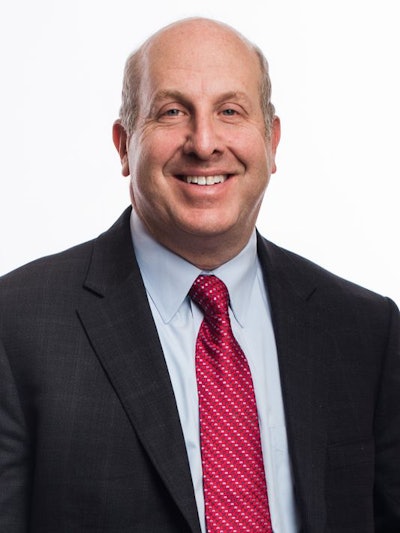A Harvard University panel, titled “Innovating on Campus: Supporting Mental Health of Students of Color During COVID-19 and Beyond,” recommended ways to promote the mental health and emotional well-being of young people of color — 45% of whom make up the undergraduate population.
The forum, sponsored by Harvard’s T.H. Chan School of Public Health in partnership with The Steve Fund and jointly with GBH News, streamed a live virtual panel on Tuesday focusing on how COVID-19 has disproportionately impacted students of color.
Expert panelists included Marvin Krislov, the president of Pace University; Dr. Meeta Kumar, director of counseling services at the University of Chicago; Dr. Tabbye Chavous, director of National Center for Institutional Diversity (NCID) at the University of Michigan; and Dr. Josephine Kim, a lecturer at Harvard University. Phillip Martin, senior investigative reporter for GBH center for investigative reporting, was the moderator.
 Marvin Krislov
Marvin Krislov“If students of color don’t see themselves reflected on the walls they have to navigate, [in] the curriculum and the authors who wrote the materials they have to read for class … and [in] the food that’s in the cafeteria,” this can negatively impact their overall mental health, said Kim. “If their identity and collective strength and resilience as well as their historical trauma [are] never acknowledged and recognized, then all of this points to a lack of inclusion and poses a threat to the mental health of students of color.”
Drawing from The Steve Fund Crisis Response Task Force report published this fall, Blacks and Latinos report higher rates of depression, anxiety and trauma-related symptoms as a result of the pandemic than do Whites. Analysis from The Steve Fund and Healthy Minds Network further reveals that among students of color using mental health services, 70% found mental health services more difficult to access since the pandemic.
Thus, “investments in infrastructure” like “having enough support available and having representation of staff is critically important,” said Kumar. Multifaceted services that break barriers and help students seek guidance and understanding about their behavior should be considered, she said.
According to a student mental health survey in September from Active Minds, a nonprofit organization supporting mental health awareness and education for students, almost 75% of students at the undergraduate and graduate level reported their mental health has either worsened, worsened somewhat or worsened significantly since the beginning of the pandemic.
“We’re finding it important to also disaggregate research findings for different racial-ethnic groups to help us consider variation in the nature of students’ experiences which may be based in societal images, stereotypes and historical statuses around the different groups,” said Chavous.
Tramy Nguyen, a first-generation college student at Yale University and a member of the Youth Advisory Board for The Steve Fund, said that COVID-19 impacted her mentally since she “lost a lot of traditional high school opportunities,” including the remainder of senior year, prom, graduation, being valedictorian and summer jobs/internships.
“The graduation part was especially difficult for me to realize that I lost because, as a first-generation student, graduation is such an important thing for my family — just to have their children finish school when they didn’t,” said Nguyen. “At my home, it was a lot of me randomly dressing up in my cap and gown so they could take pictures,” almost every other week, she added.
At school, part of the challenge of connecting and helping students is that counseling and advising are completely different now.
“Frankly, I do think this time demands even more of us in terms of really reaching out affirmatively to students and asking them, ‘is everything okay?’” said Krislov.
Both he and Kim dedicate time before and after class for their students to talk or ask questions — whether it’s about academics or their emotional well-being.
Ryan Houston-Dial, a first-generation college senior at The University of Texas at San Antonio and a member of the Task Force at The Steve Fund’s Youth Advisory Board, understands the challenges.
“If you don’t have that in-person instruction from your professor or lecturer, it’s a lot harder to understand what you’re actually learning,” he said, especially if students are taking more challenging courses to complete the degree.
Faculty also need to understand that the “campus racial climate” can also play a role in the mental health challenges among students of color, he added.
The killing of George Floyd in May “was just another gut punch” for Houston-Dial, as well as another example of the “intersectionality of race and COVID-19.”
To help get students through these challenges, teachers need education on mental health literacy first, said Kim. It would “really make them aware” and provide guidance on “how you might do this over Zoom.”



















